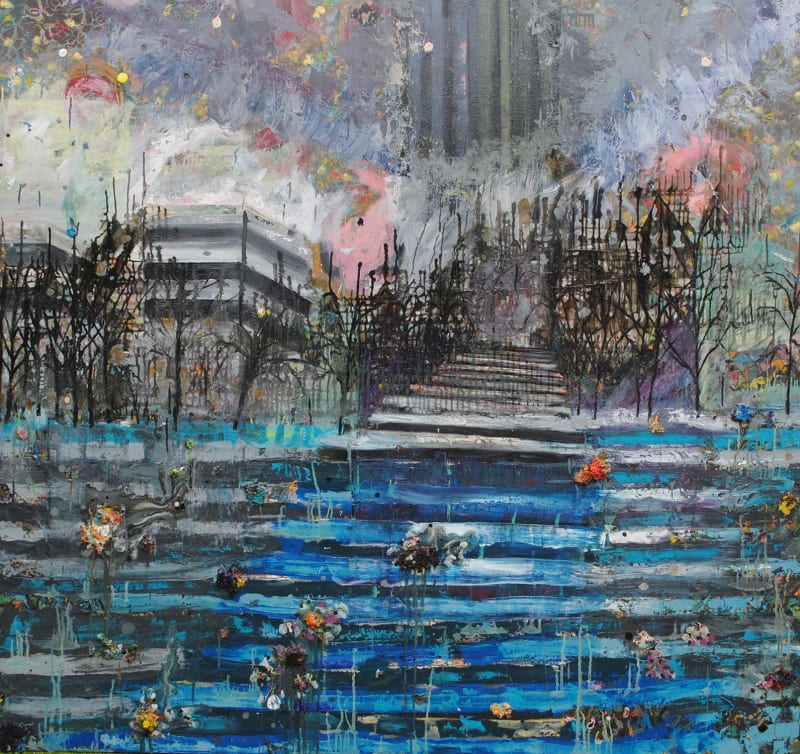Like all contemporary artists, Thomas Brezing’s work responds to the world around him and his experience of living in it. While nominally a landscape painter, his work is not a straightforward depiction of mountains and valleys but rather an attempt to reconcile his understanding of the world and his interest in theology with the horrors of war, injustice and inhumanity which is the reality for so many. The recent media depictions of the plight of Syrian and Iraqi refugees fleeing war zones have informed his latest paintings. These events are not depicted directly but are viewed through the prism of biblical parables, reinforced by their re-telling in Herman Meville’s classic novel Moby Dick, the story of Captain Ahab’s lifelong obsession with hunting down a great white whale.
The exhibition title ‘Jonah and the whale’ references the scriptural passage where God directs Jonah to the faraway city of Nineveh to inform the sinful citizens that their days are numbered - ancient Nineveh was known for its lawlessness and violence. Jonah plays truant, fleeing in the opposite direction by boarding a ship at Tarshish. Shortly after it embarks, God conjures a mighty storm that threatens the lives of all on board until Jonah directs the crew to throw him overboard so that the ocean will cease raging. Instead of drowning, Jonah is swallowed by a divinely appointed whale in whose belly be remains until he repents and prays for forgiveness. Eventually delivered to dry land, Jonah submits to God’s command and travels to Nineveh - the remains of this ancient city are now contained within the suburbs of modern day Mosul, in Northern Iraq. This tale of Jonah forms the basis of a sermon delivered by Father Mapple in Moby Dick
Brezing also draws on another episode in the novel, which takes places in The Spouter Inn. Melville’s narrator Ishmael, describes a painting hanging on the inn wall, a ‘very large oil painting, so thoroughly besmoked and in every way defaced … it was only by diligent study …and careful inquiry of the neighbours that you could in any way arrive at an understanding of it’s purpose’. For Ishmael, the artist has sought to ‘delineate chaos bewitched’. Brezing’s paintings draw on the work described in the inn, working and reworking his surfaces to create a complexity of tones and textures. From the layers, discernible elements emerge - buildings, crowds of people, clusters of flowers in bloom, expanses of water and the large fish of fable and bible.
Brezing invites us to draw parallels between these scenes and our own lives as we avert our gaze from the plight of people in war-torn Syria and Iraq and the at-times medieval violence they are fleeing, like Jonah did initially from the travails of Nineveh.
